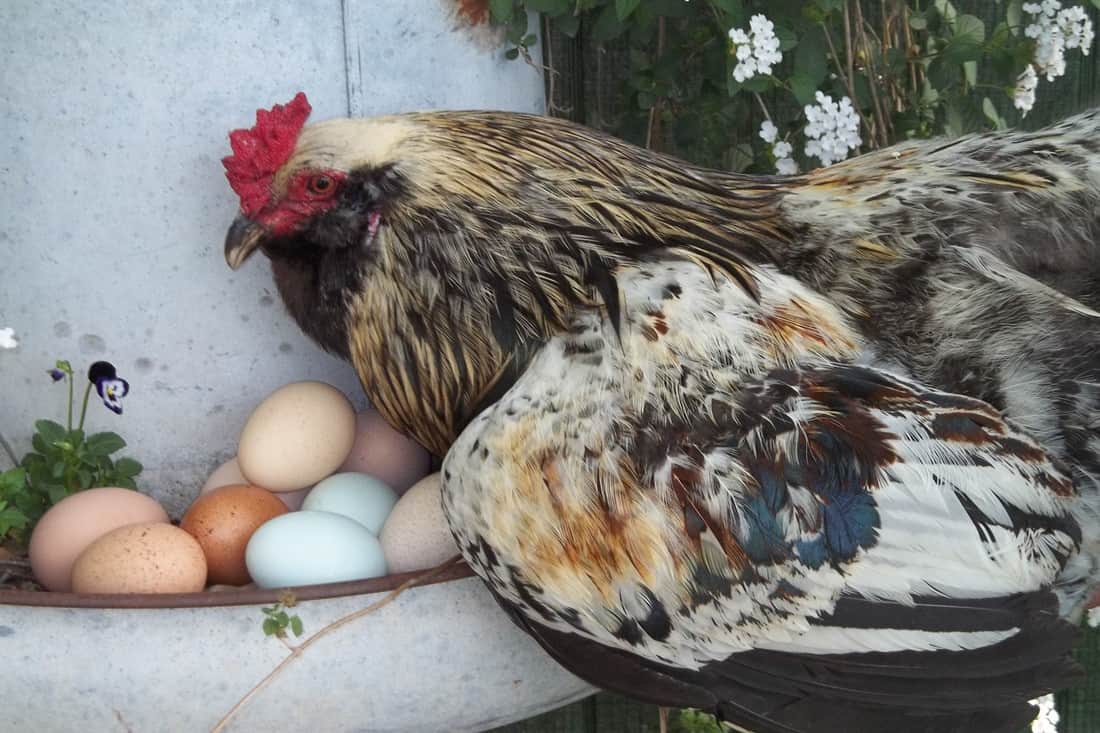It may come as a surprise to many, but roosters can lay eggs in chicken husbandry. Contrary to what most people think, roosters are not only good for producing fertilized eggs but can also lay eggs on their own. This is an interesting phenomenon in the world of poultry husbandry, and this article will explore the surprising reality of rooster eggs.
Can a Rooster Lay an Egg?
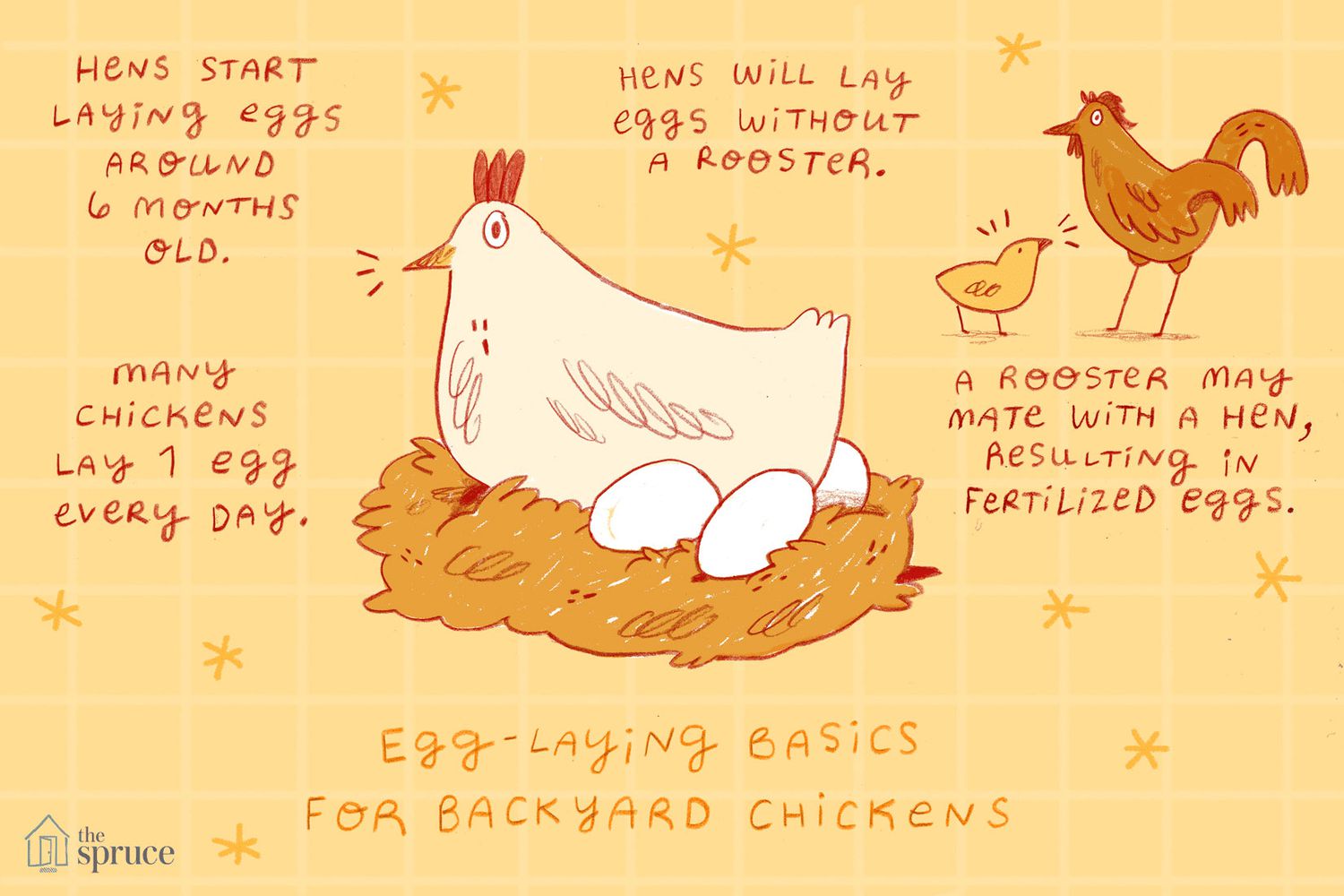
The answer is yes! It may sound strange but it is a reality in chicken husbandry. It is possible for a rooster to produce an egg, although it is rare and not a common occurrence.
The egg laid by a rooster is not fertile and will not hatch into a chick. The egg is usually smaller and much softer than the eggs laid by a hen. It is usually misshapen and has no yolk.
It is important to note that a rooster does not possess the necessary reproductive organs to produce a fertile egg. This means that the egg laid by a rooster will never develop into a chick.
Roosters are able to lay eggs due to a condition called ‘prolapse of the oviduct’. This occurs when the oviduct, the organ responsible for transporting eggs from the ovary to the outside of the body, becomes damaged or weakened. When the oviduct prolapses, the egg is forced out and laid by the rooster.
It is important to note that a rooster laying eggs is a sign of a health issue. If a rooster is laying eggs, it is important to seek veterinary advice as soon as possible to ensure that the underlying cause is addressed and that the rooster’s health is not compromised.
In conclusion, it is possible for a rooster to lay an egg, although it is not a common occurrence. The egg laid by a rooster is not fertile and will not develop into a chick. A rooster laying eggs can also be an indication of a health issue and should be addressed by a vet as soon as possible.
What Causes a Rooster to Lay an Egg?
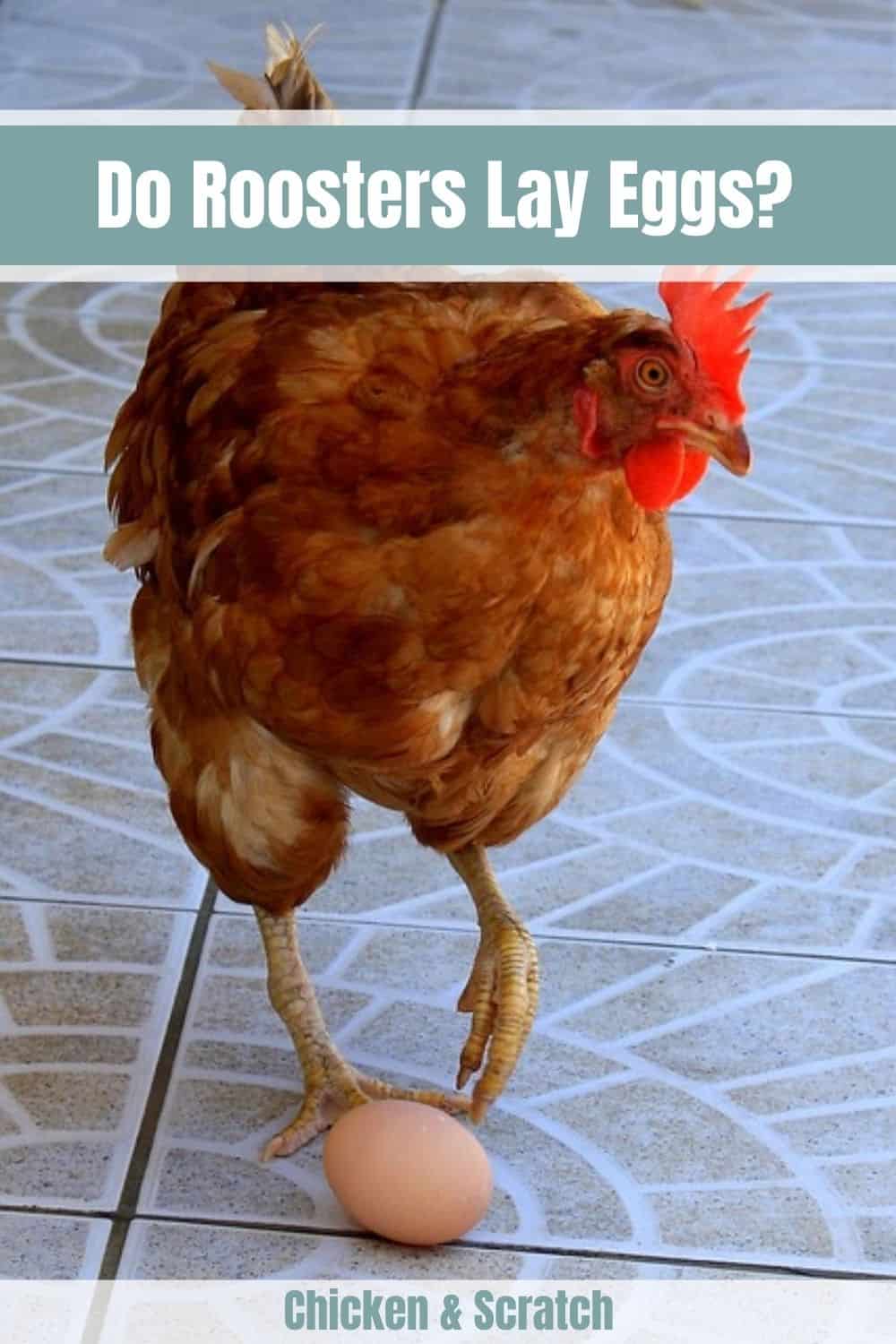
The surprising reality is that roosters can lay eggs, though it is very rare. This phenomenon is called ‘cockerel egg-laying’ and is caused by a hormonal imbalance in the rooster’s system. A male rooster’s endocrine system produces a hormone called testosterone, which helps control growth and development. When a rooster’s testosterone levels become too low, it can cause the bird to experience a hormone imbalance. This imbalance can lead to the rooster producing and laying eggs, as the bird’s body believes it is a female.
In most cases, the egg laid by a rooster is not viable, meaning it will not hatch. This is due to the rooster’s body not producing the necessary hormones and nutrients to create a viable egg. However, in some cases, a viable egg can be laid by a rooster, though this is not common.
Though cockerel egg-laying is rare, there are some methods of encouraging a rooster to lay an egg, such as providing an artificial nest and a low-stress environment. However, this is not recommended, as it can be detrimental to the bird’s health, and is not necessary for successful chicken husbandry.
Overall, while it is possible for a rooster to lay an egg, it is very rare and should not be encouraged. Chicken husbandry will usually not require a rooster to lay eggs, and this should not be a cause for concern.
How Often Does a Rooster Lay an Egg?
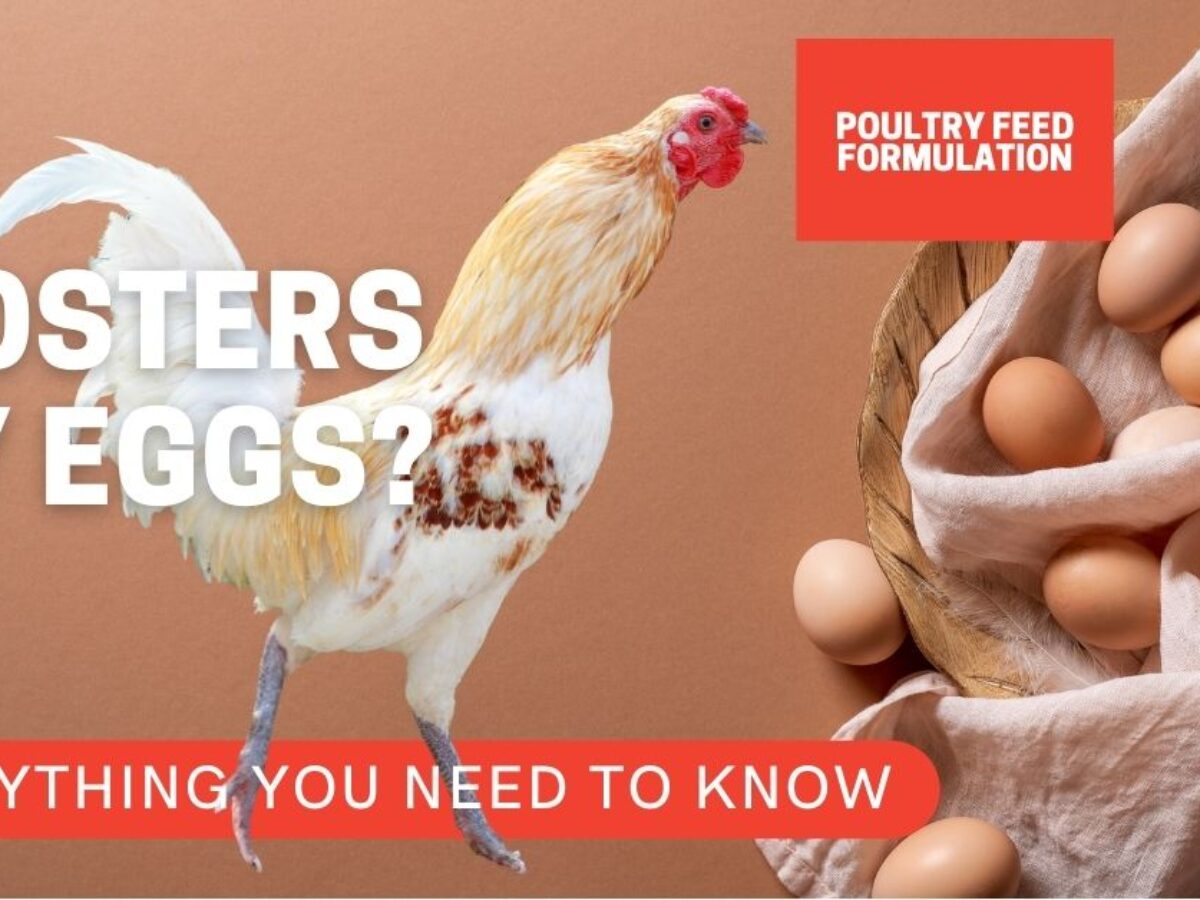
Contrary to popular belief, roosters do not lay eggs. Roosters are male chickens and do not possess the reproductive organs necessary for egg-laying. In a chicken husbandry, it is the female hens that are responsible for laying eggs.
A hen can lay up to an egg a day and up to seven eggs a week. The laying of eggs is a process that is regulated by the length of daylight. As the days become longer during the spring and summer months, hens will become more active and lay more eggs. During the winter months, when the days become shorter, hens will lay fewer eggs.
The age of the hen also affects her egg-laying habits. When a hen is between the ages of 18 and 24 weeks old, she will be at her peak egg-laying potential. This is because the hen has had enough time to mature and her reproductive cycle is in full swing. After the hen reaches the age of two years, her egg-laying capabilities will start to decline.
Overall, a hen can lay up to 250 eggs in a single year. Each egg will take around 24-26 hours to form and be ready to be laid. In short, a hen can lay an egg every day while a rooster will never lay an egg.
What is the Difference Between a Rooster Egg and a Hen Egg?
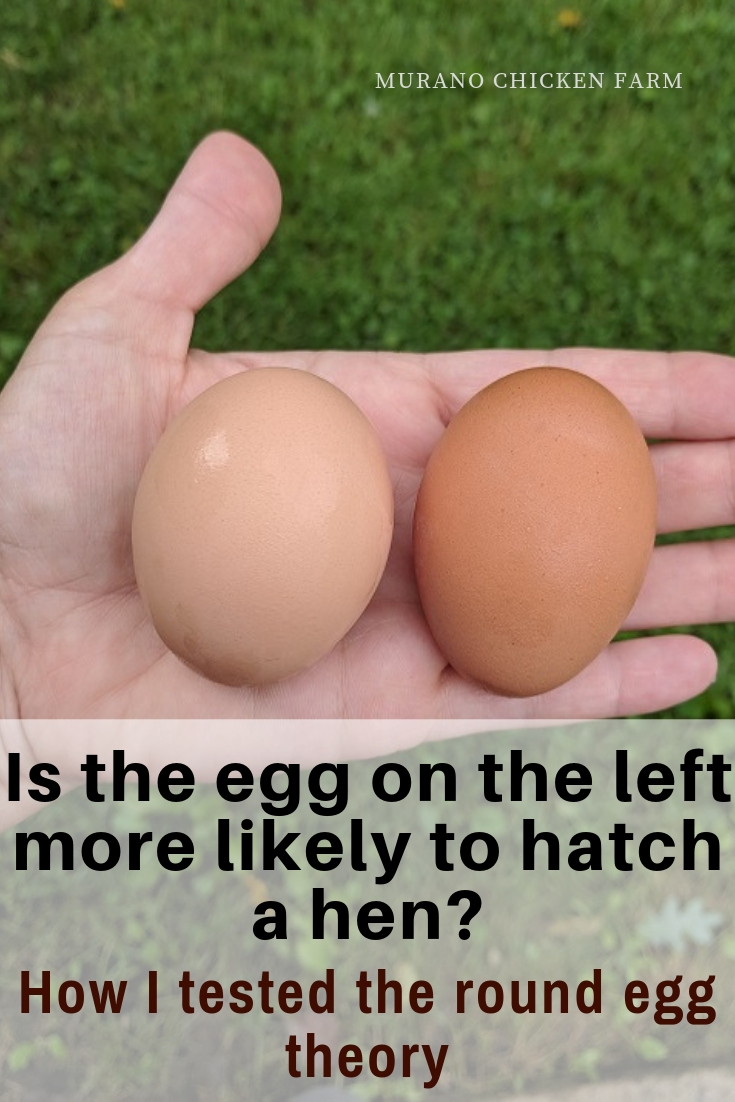
Surprisingly, roosters can lay eggs, although not as frequently as hens. Rooster eggs and hen eggs have some differences that are worth noting.
| Rooster Egg | Hen Egg |
|---|---|
| Smaller in size | Larger in size |
| Rounder in shape | More elongated in shape |
| Thicker and tougher shell | Thinner and more fragile shell |
| Lighter in color | Darker in color |
| Yolk is smaller and lighter in color | Yolk is larger and darker in color |
| No embryo | May contain an embryo |
Rooster eggs are usually infertile and never hatch, since a rooster does not have ovaries to produce the female reproductive cells. Additionally, rooster eggs are not suitable for consumption due to their thick, tough shells.
What are the Implications of a Rooster Laying an Egg?
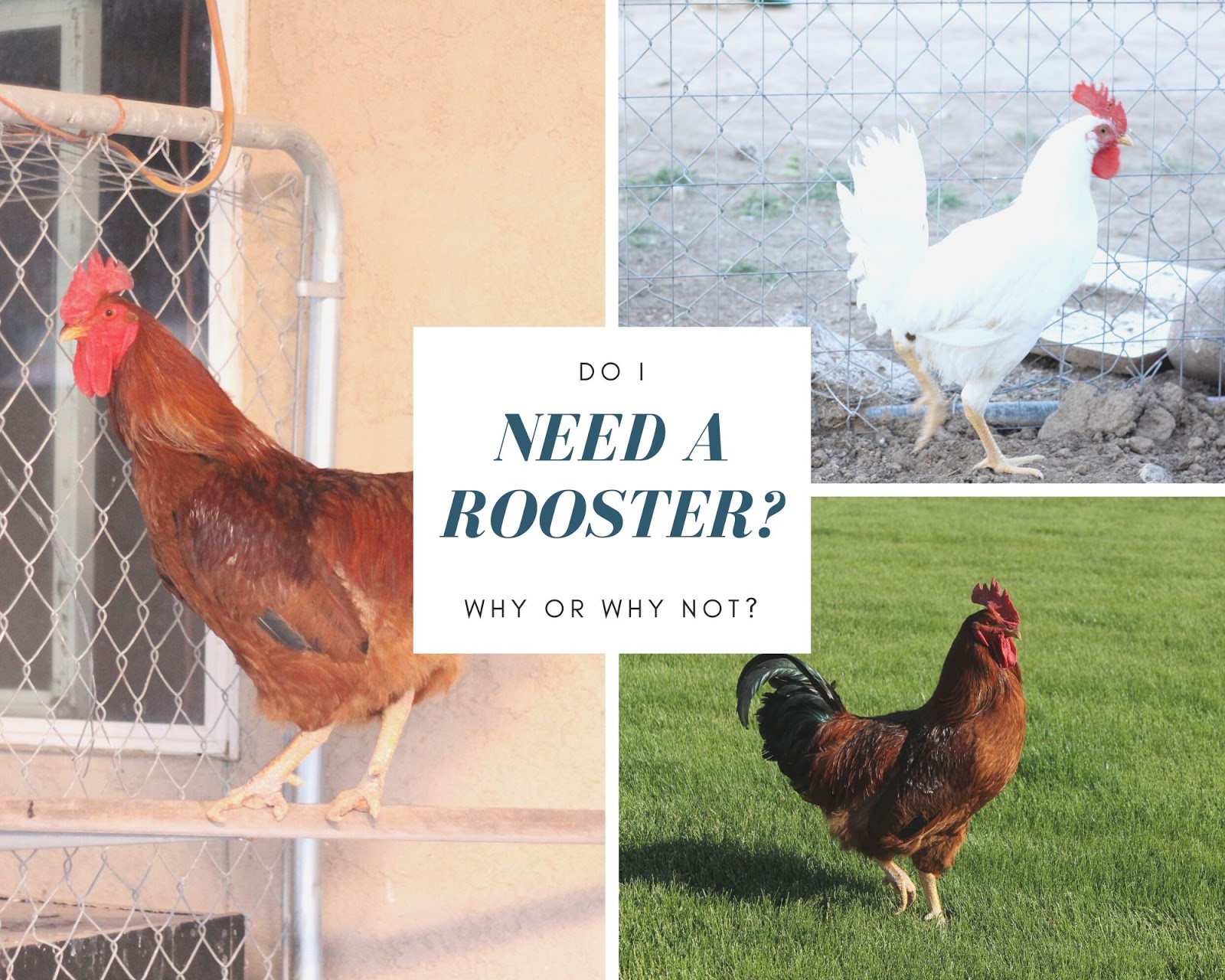
Gender: The most obvious implication is that the gender of the rooster laying the egg is in question. It is well established that only female chickens can lay eggs, so a rooster laying an egg is a clear indication of a gender issue.
Health: It is also an indication of possible health problems. Roosters are not capable of producing eggs and any egg laid by a rooster could be an indication of an underlying health issue or hormonal imbalance.
Genetics: It is possible that the rooster in question has a genetic mutation that is allowing it to produce eggs. This could have significant implications for the genetic makeup of the flock and the overall health of the chickens.
Genetic Testing: It is important that genetic testing is done on the rooster in question to determine if any genetic mutations are present. This can help to identify any potential issues that could affect the health of the chickens and the overall flock.
Management: Roosters that are laying eggs should be managed differently than other roosters. They should be monitored carefully and provided with a separate enclosure to ensure that their eggs are not eaten by other chickens.
Layers: Roosters that are laying eggs should be separated from the rest of the flock and should be given special attention and care. They should also be provided with proper nutrition to ensure that the eggs they lay are of high quality.
Should Egg-Laying Roosters be Removed from the Flock?
The Surprising Reality: Rooster Lays Eggs in Chicken Husbandry
- Roosters are capable of laying eggs, although the eggs are not viable and do not hatch.
- The eggs that they lay are typically smaller than regular chicken eggs and are not fertilized.
- Having a rooster in the flock can cause stress on the hens, resulting in reduced egg production.
- The presence of a rooster in the flock can also lead to increased aggression and fighting among the birds.
- The presence of a rooster can also increase the chances of diseases being spread among the flock.
- Roosters are not necessary for the flock to produce eggs, and removing them from the flock can help to reduce stress and improve egg production.
Frequently Asked Questions
How Can a Rooster Lay Eggs?
In chicken husbandry, it is possible for a rooster to lay eggs. This occurs as a result of hormonal imbalances associated with male reproductive organs, leading to the production of a soft-shelled egg. These eggs do not contain a viable embryo and are not suitable for hatching. Roosters can lay eggs even if there is no hen present, but the eggs are likely to be infertile. Roosters can also lay eggs after mating with a hen, but the eggs are still unlikely to be fertile.
What is the Nutritional Value of Eggs Laid by a Rooster?
Eggs laid by a rooster are a valuable source of nutrition and contain a variety of essential vitamins and minerals. An egg contains 6 grams of protein and 5 grams of fat, as well as iron, selenium, vitamin D, and other B vitamins. The yolk of an egg is also a great source of healthy fats and cholesterol, which is necessary for the production of hormones. Additionally, the egg white is rich in vitamins and minerals, such as calcium and magnesium.
Are There Any Health Risks Associated With Eating a Rooster’s Eggs?
No, there are no health risks associated with eating a rooster’s eggs. Rooster eggs are similar to hen eggs, containing the same nutritional value and being safe to eat. The only difference is the size of the egg, as rooster eggs tend to be slightly smaller than hen eggs.
Is it possible for a rooster to fertilize its own eggs?
No, it is not possible for a rooster to fertilize its own eggs. This is because roosters lack the necessary reproductive organs to produce viable sperm, which is needed to fertilize an egg. This means that a rooster must mate with a chicken in order to produce fertile eggs.
How can chicken husbandry be used to encourage roosters to lay eggs?
- Provide roosters with a balanced diet: Providing a balanced diet is essential for overall health and fertility in roosters. Feeding your roosters a nutritious diet with all the essential vitamins and minerals, such as proteins, carbohydrates, and fats, is necessary for the birds to produce eggs.
- Create a stress-free environment: Stress can be a major factor in reducing fertility in male chickens. It is important to create a stress-free environment for your roosters, as stressed birds may not be able to reproduce. Providing plenty of space for the birds to roam about, providing them with plenty of food and water, and keeping them away from loud noises or too much human contact can help reduce stress in your chickens.
- Provide adequate lighting: Roosters need a certain amount of light to stimulate egg production. Ensuring your chickens have access to natural sunlight or artificial lighting for at least 14 hours a day can help them produce eggs.
- Provide nesting boxes: Roosters may be encouraged to lay eggs if they have a suitable nesting box. These boxes should be well-ventilated, in a quiet area, and away from any sources of stress.
Conclusion
The reality of a rooster laying eggs is indeed surprising. It suggests that there is a need to re-evaluate the traditional beliefs around chicken husbandry, and to consider the potential of roosters as egg-layers. Although the practice of roosters laying eggs is not yet commonplace, it is an interesting possibility to explore, particularly as a way to improve the efficiency of egg production in small-scale chicken husbandry operations.
